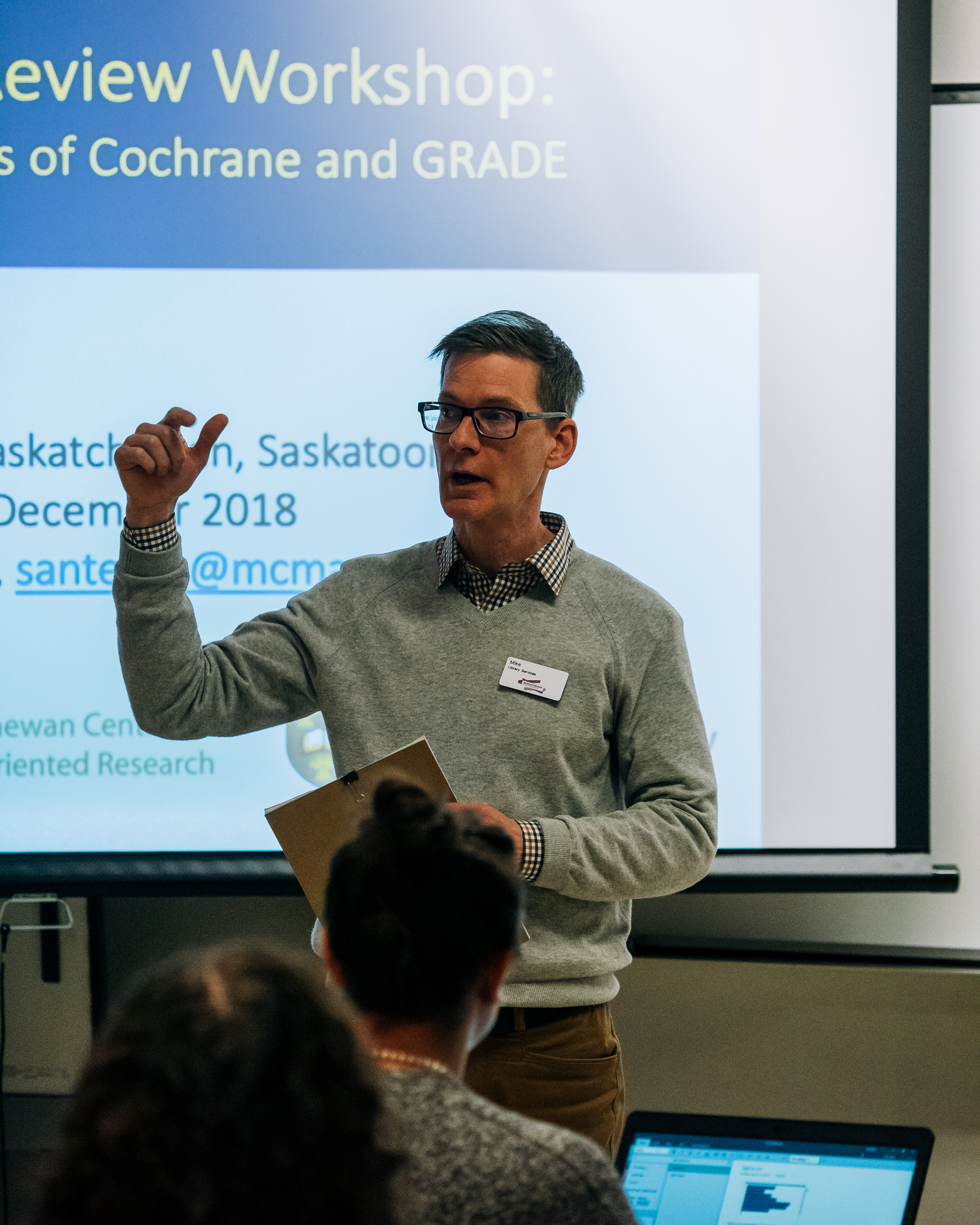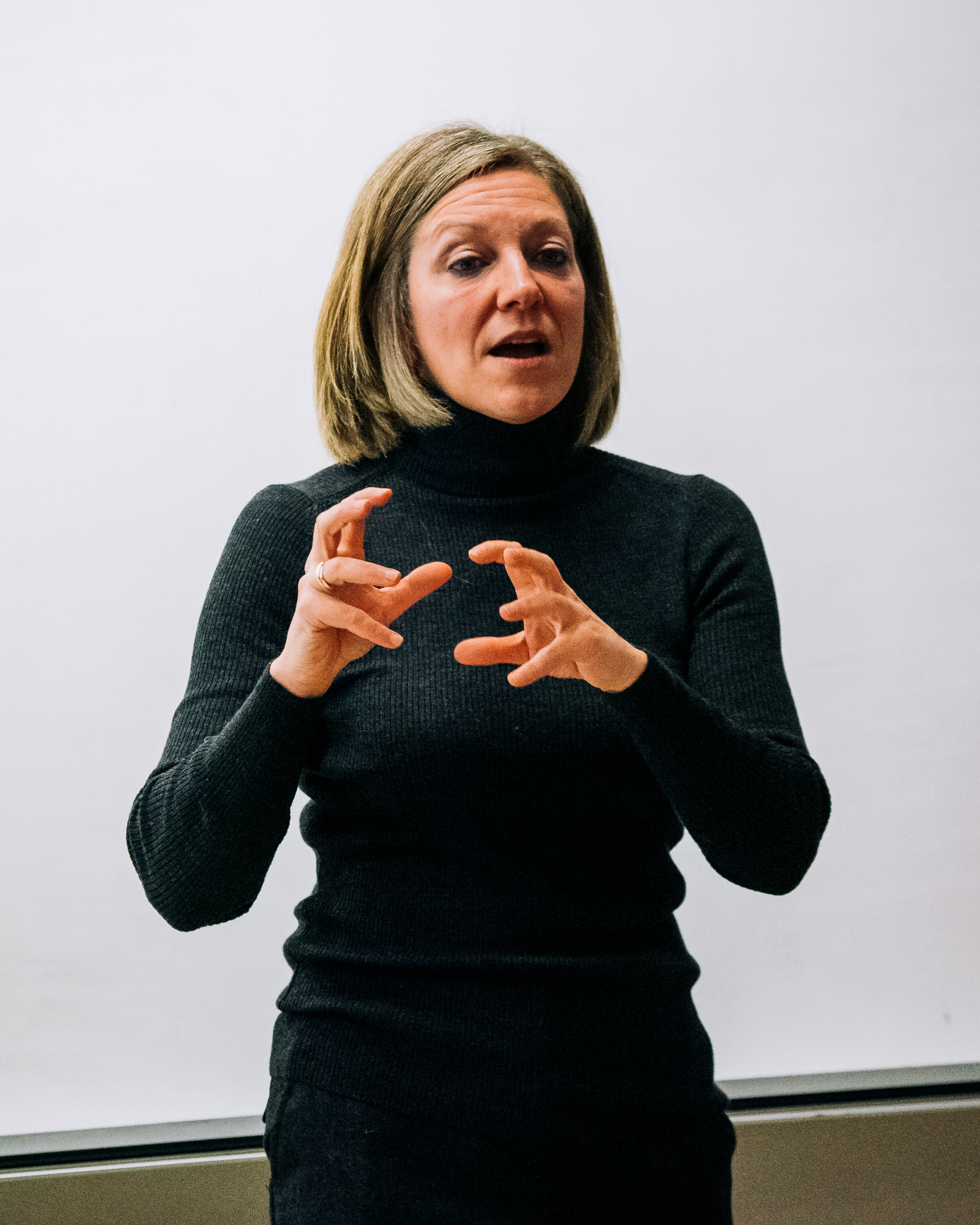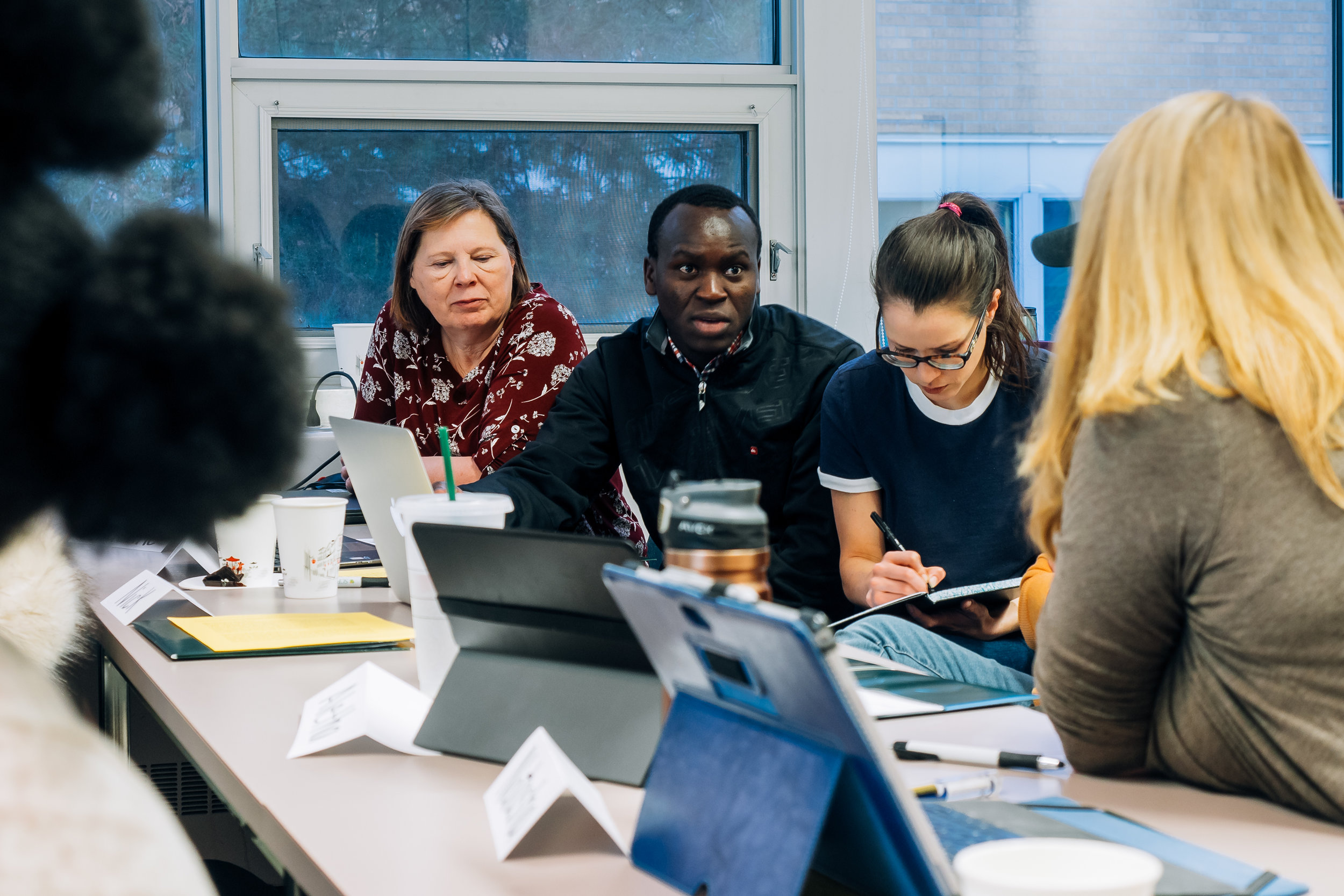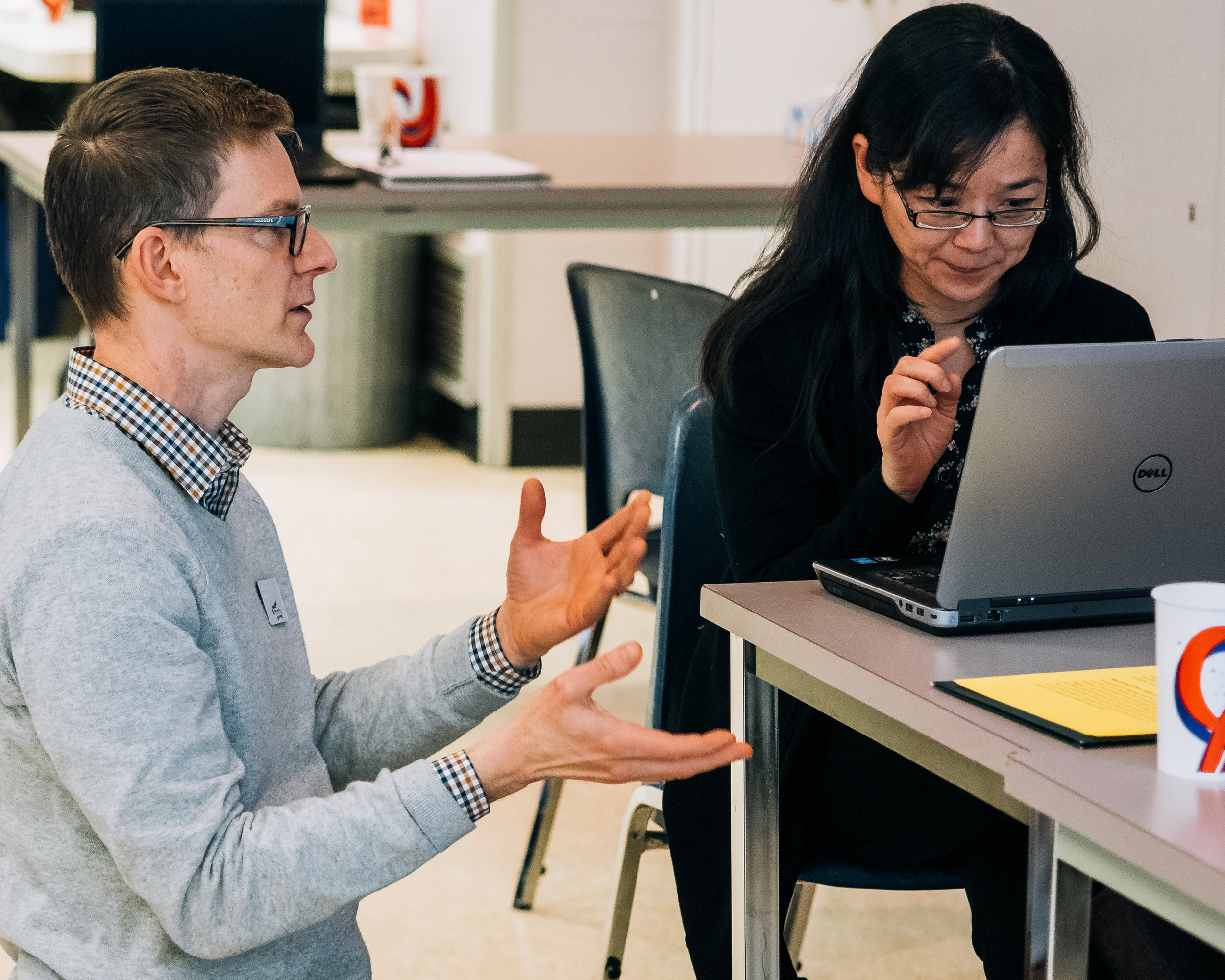Cochrane Canada comes to SCPOR
SCPOR workshop on Systematic Reviews highlights the importance of making research meaningful to patients
Dr. Nancy Santesso, Deputy Director of Cochrane Canada and Assistant Professor at McMaster University was the feature lecturer at a SCPOR hosted workshop held at the Saskatchewan Polytechnic campus on December 14th and 15th.
The two-day workshop - hosted by SCPOR, Saskatchewan Polytechnic, and the University of Saskatchewan - was a primer on systematic reviews. A systematic review summarizes the results of available, carefully designed healthcare studies and provides a high level of evidence on the effectiveness of healthcare interventions.
This is the second workshop on systematic reviews hosted by SCPOR in the last two months. SCPOR's workshops on systematic reviews are popular and well attended. Courses are capped at 25 participants each in order to insure a more intimate learning environment, and to provide attendees with one-on-one interaction time with trainers. A total of 48 registrants have attended SCPOR's last two rounds of systematic review workshops, but the course has a wait-list of well over 70 people. For lecturers like Santesso, this speaks to the growing interest in systematic reviews.
“You need to be able to pull together evidence in order to make decisions,” she explains.
Santesso says she encourages the people who attend her workshops to look at the type of information they gather in a systematic review from a patient perspective.
"Ask yourself, 'why would this be important to a patient?’ and 'how can that improve patient care and the outcomes for patients?'"
She says the types of skills taught in these workshops can be of value not just to researchers, but a wide range of people from different fields, and with different backgrounds.
“The people that attend these workshops are always a really broad group of people. It's really, really nice when we have patients in the audience who are learning about it."
"We always have clinicians involved. But more and more, it’s about people in policy who are making decisions whether it’s federal or provincial or even at a municipal level. We just did a session with people who are program managers at long-term care facilities. So it can be any level."
"I think people realize, that people need evidence to make their decisions."
Written by Farha Akhtar
Photos by Chris Plishka






